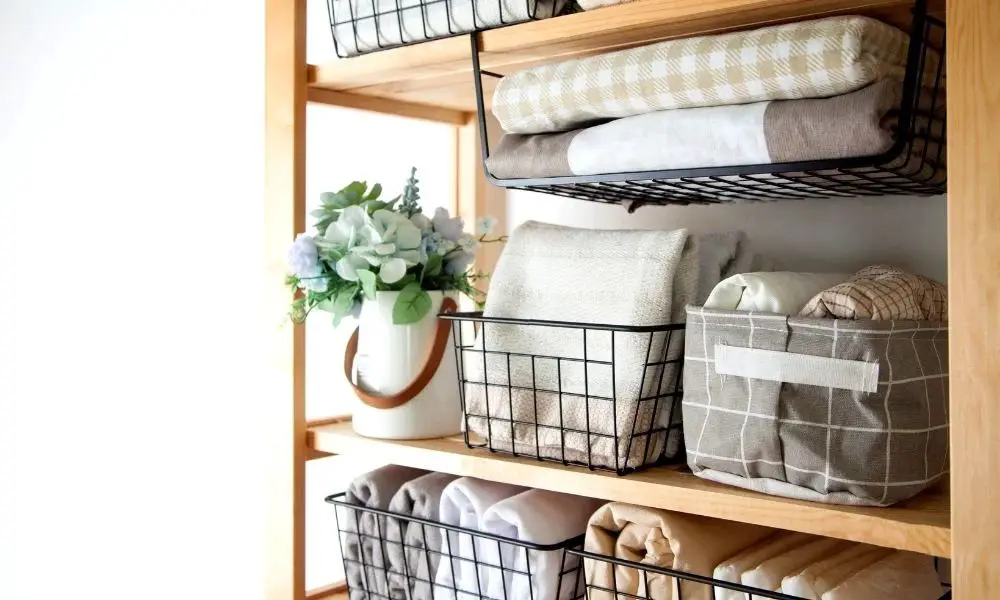There are a few common reasons why linen closets can develop unpleasant odors over time:
Page Contents
Mildew and Mold Growth
Linen closets often contain damp towels, sheets, and clothing that can promote mildew and mold growth if not dried thoroughly before storage. Mildew and mold release unpleasant musty odors. Dark, humid environments like linen closets are ideal environments for mildew and mold to thrive.
Improper Airflow
Linen closets are often enclosed small spaces with little ventilation. Lack of airflow allows odors to build up and get trapped inside. Without fresh air exchange, smells from damp linens can concentrate and worsen over time.
Bacteria Growth
Bacteria growth on dirty laundry or towels also leads to bad odors in linen closets. Towels and sheets used after bathing contain bacteria that multiply rapidly in closed, humid conditions. The bacteria feed on residues left behind on fabrics and release foul-smelling metabolic waste products or gasses.
Pet Odors
Storing pet beds, pet blankets, or other pet items in a linen closet can transfer bad pet odors to other linens. Even small amounts of pet dander, hair, or accident residues in a confined space like a linen closet can make the whole area smell bad.
Solutions for Improving Linen Closet Odors
Here are some tips to help eliminate odors and keep linen closets smelling fresh:
- Wash linens in hot water regularly to kill bacteria and fully remove body oils, residues, and odors.
- Dry damp towels, sheets, and fabrics completely before returning them to the linen closet.
- Disinfect the linen closet periodically by washing the shelves and walls with a bleach solution. This kills mold, mildew, and bacteria.
- Use closet fresheners or open containers of baking soda to absorb odors.
- Install a low wattage lightbulb or LED strip inside the closet to inhibit mold and mildew growth.
- Improve airflow by keeping the closet door open when possible or installing vent slats in the door.
- Clean out clutter and dispose of stained, musty, or spoiled linens.
- Store pet beds and pet items separately, not in the linen closet.
When to Call a Professional
If smells persist after thorough cleaning and implementing storage tips, there may be a moisture issue or hidden mold growth in the linen closet. Water leaks, high humidity levels, or poor insulation could be contributing to significant mildew or mold you can’t see. In that case, call a water damage specialist to inspect for hidden moisture issues or a mold remediation company to remove contamination.
Conclusion
Bad smells in linen closets most often arise from mildew, bacteria, and lack of ventilation. Regular cleaning, prompt drying of fabrics, storage tips, and deodorizing can help eliminate odors. But if problems persist, there could be underlying moisture or extensive mold issues requiring professional evaluation and remediation.
